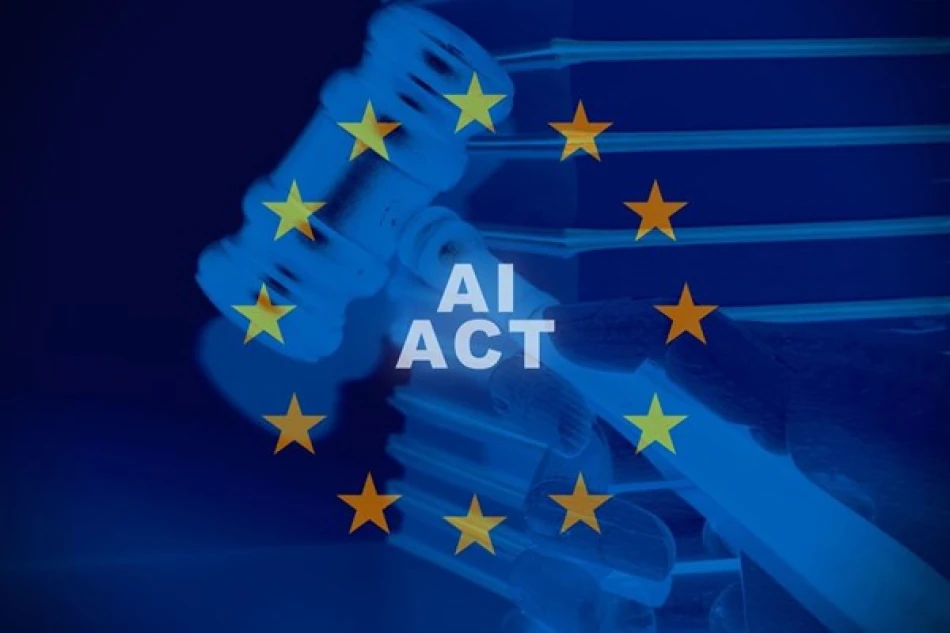
Debate Rages Over Suspending EU's AI Regulation: Stakeholders Weigh In
Europe's AI Law Faces Growing Pressure as Industry Giants and Former Leaders Demand Implementation Pause
The European Union's landmark AI Act is encountering significant resistance from both industry leaders and political heavyweights, with former Italian Prime Minister Mario Draghi joining over 40 major European companies in calling for a temporary suspension of the law's implementation. This mounting pressure reflects deeper concerns about regulatory overreach potentially stifling innovation at a critical juncture for Europe's tech competitiveness.
Draghi Amplifies Corporate Concerns Over Regulatory Uncertainty
Speaking at a conference reviewing his 2024 report recommendations at the European Commission headquarters in Brussels, Draghi echoed calls from industry titans including ASML, Philips, Siemens, and Mistral AI. These companies had previously petitioned Commission President Ursula von der Leyen in July for a "temporary freeze" to allow adequate time for streamlined corporate implementation.
The former European Central Bank president argued that the rules, which entered force in August and will be fully implemented by 2027, are creating dangerous "uncertainty" for businesses. His intervention carries particular weight given his reputation as an architect of European economic policy and his recent comprehensive analysis of EU competitiveness challenges.
Implementation Phases Create Uneven Regulatory Landscape
Draghi noted that the initial phase, which banned AI systems with "unacceptable risks," proceeded relatively smoothly thanks to voluntary codes of conduct signed by major companies alongside Commission guidance. However, he expressed concern about the upcoming phase targeting high-risk AI systems in critical infrastructure and healthcare sectors.
The regulatory framework becomes particularly contentious around general-purpose AI systems like ChatGPT and Google's Gemini. The Commission's delayed guidance has left companies, including Google, requesting voluntary compliance grace periods—a clear signal that even tech giants are struggling with the law's complexity.
Enforcement Gap Reveals Implementation Challenges
A fundamental weakness in the AI Act's rollout has emerged: most EU member states still haven't designated which authorities will monitor compliance. The Commission has yet to publish a list of regulatory bodies, creating a enforcement vacuum that undermines the law's credibility and effectiveness.
This regulatory confusion stands in stark contrast to more streamlined approaches seen in other jurisdictions. Singapore's model AI governance framework, for instance, emphasizes industry self-regulation with clear government oversight, while the UAE has established dedicated AI authorities with defined mandates.
Political Tensions Rise as Trump Threatens Trade Retaliation
External pressure is intensifying with President Donald Trump's threat to impose "significant additional tariffs" on countries adopting laws targeting American tech companies. This represents a direct challenge to European digital sovereignty efforts and mirrors broader transatlantic tensions over tech regulation.
The Commission's response—asserting the EU's "sovereign right" to regulate economic activities according to its democratic values—signals Europe's determination to maintain regulatory independence despite potential economic consequences. This stance reflects a broader European strategy to establish alternative governance models for emerging technologies.
Civil Society Groups Resist Regulatory Rollback
The push for implementation delays faces strong opposition from over 50 organizations, including Access Now, the Centre for Democracy and Technology Europe, and the European Consumer Organisation. These groups argue that reopening or delaying the law would undermine accountability mechanisms and weaken legal protections.
Their resistance highlights a fundamental tension in European tech policy: balancing innovation incentives against consumer protection and democratic values. This debate mirrors similar discussions in the United States, where federal AI regulation remains fragmented across agencies.
Market Implications and Strategic Considerations
For investors and tech companies, the AI Act's uncertain implementation creates both risks and opportunities. European AI startups may face competitive disadvantages against less regulated rivals, potentially driving talent and investment to more permissive jurisdictions.
However, early compliance could also create competitive advantages as global standards converge around European norms—similar to how GDPR influenced global privacy practices. Technology Commissioner Henna Virkkunen's promise of a comprehensive digital package in December, aimed at reducing compliance burdens, suggests the Commission recognizes these economic pressures.
The outcome of this regulatory standoff will likely determine whether Europe can maintain its position as a global standard-setter for tech governance or whether economic pressures will force a retreat from ambitious regulatory goals. The stakes extend far beyond AI policy, touching on fundamental questions about democratic governance in the digital age.
Most Viewed News

 Layla Al Mansoori
Layla Al Mansoori






